Interview with Devin Townsend
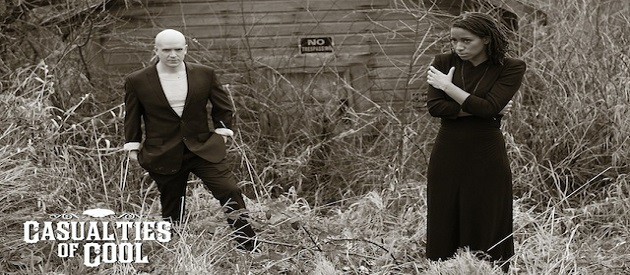
Legendary Rock Interviews is stoked to bring you their latest interview but this one comes with a twist as it was conducted by drummer Mike Dupke, formerly of W.A.S.P., Eric Sardinas and Hair Of The Dog. When the opportunity came up to interview someone of Devin Townsend’s caliber. we knew it needed to be unique so we turned to our friend and a HUGE fan of Devin’s work, Mike Dupke. Mike brings an interesting perspective to the table since he is also a recording artist and touring musician. Legendary Rock Interviews would like to thank Mike for taking the time to talk to Devin and keep an eye out for our interview with Mike, coming soon!
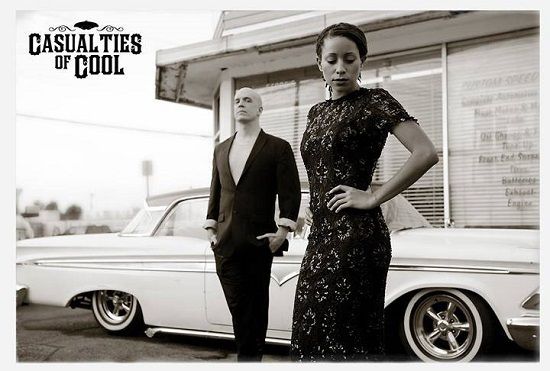
Legendary Rock Interviews: You have said before that most of your work represents where you are at that given time. And most of your releases have a common theme or mood. Are they created that way by design, or do you write more from a stream of consciousness and then figure out if it could go on Casualties of Cool, or an Epicloud or Sky Blue type of release?
Devin Townsend: I think it’s more of that, but I prefer to think of it in two ways. You know, I’ve been sober for a long, long time now. So when I write, I’m at a point where I can truly trust my subconscious to take me into place that are most appropriate for me at that point. In the past, I didn’t trust it; I was always resisting it, thinking that there’s some fundamental flaw in my character that was going to sabotage my personal life just on allowing myself to follow these creative things. But then, when I remove the sort of external stimulus’s, what ever they were– any sort of media, drugs, alcohol or whatever, there’s a sense of confidence that allows me to not only write on auto-pilot but allow it to guide itself. Like, you find the grooves. You’ll start somewhere, and then you just fall into the path of least resistance. And then at the end of it, the product is usually as much a surprise to me as it is to anybody else. With Casualties for example, it was never ever my intention to be provocative with it or to try and get Brownie points for saying “see, check it out, I’m gonna do some really obscure type of music here.” It was just that all signs pointed to that.
Essentially, the process ends up to me…..It’s like, I remember seeing a show about an archaeologist and how they’ll find something sticking out of the dirt, for example. And it’s like, “well, I wonder what that is,” and they start to carefully excavate it. And then, eventually, they’re privy to what it is. They’re like “oh, THAT’S what is is!” And then they either document it or move on, or collect it and put it in a museum or whatever. And I’ve always found not only my writing process but just writing in general is very similar to that. You might have something that you’re drawn to– a sound or a smell or a work or guitar or emotion…anything. And then at each point in my life, I find that these things…they morph. Like there was a time in my life I was really interested in manga comics and another point when I was interested in trees or what have you. I find that just by letting it occur, those things find common threads with each other and then after a year and a half of just absentmindedly writing, all paths point to a very specific thing.
Take Ki for example. All of a sudden it had a native, indigenous North American culture sort of vibe to the artwork but there’s also this thing about aliens and about shadows. There are certain types of guitar sounds and a certain type of personnel within the musicians I hired for it. And before you know it, the only word that seemed appropriate was, “Ki,” which is about life energy and blah blah blah. And when it’s finished and I listen to it, it’s such a specific thing that there’s only one way it can go. By the time I’m finished sort of excavating it, that’s how it goes. And then once I’m done, typically the next thing I do is a reaction to that because by making these records, I end up purging those questions and thoughts and it leads to something else. That’s why when people are confused as to why I can’t go back in time to do things like Strapping or even Deconstruction or what have you; it’s because it’s of no value to me in terms of my objectives anymore whatsoever except as an artifact of the past. So, I guess if you get to the point where you’re struggling so much for the money or whatever that you need to get a quick buck, I’m sure you could phone it in. B ut ultimately that’s a lot of invasive pressure if you’re just going to be phoning it in for a job.
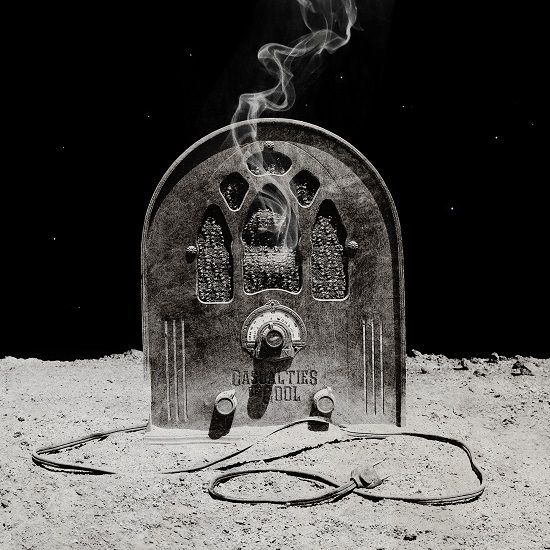
LRI: Now I know some artists have tried to write the big proverbial pop hit in the hopes of making the next top hit and being a ghost writer. Has that thought ever occurred to you?
DT: Well, I’ve got a good friend of mine, Naoki, he use to be an A&R guy at Sony Japan, and now he lives in L.A. And he has a business where he gets writers to write for pop groups and for boy band groups and for Korean pop band, and that sort of stuff. The stuff you hear anytime you go into a Nordstrom’s, all that shit. That’s what he does, and there’s still a ton of money in that. So, he very kindly come to Vancouver recently and he asked me to go out to breakfast with him. And he said “look, I’m writing this stuff. I know you have a propensity for melodies and melodic things. Why don’t you consider writing for me and writing some of these songs?” So I was like, I’ll give it a shot, why not? I mean, if it’s not my name on it, sure. You know, I’m not starving but I’m certainly not rolling in it.
If I could make a bunch of money and chill out a bit in my process that would be great! So, I tried writing a bunch of songs for him, but I’m not cut out for it, man. I over complicate it all. And when I try and simplify it, I hate it! It’s just not for me. And I have a lot of respect for songwriters that do that sort of stuff because it’s not easy. It’s not easy just to hold your fucking interest in it. Let alone make something that, you know… There’s a song that I hate so much right now, a song about a cheerleader. God, that song’s bad! It’s just everywhere! It’s like (singing) “dee dee dee, cheerleader” with a trumpet playing in the back… It’s just seven shades of shit. But, you know, that one single has sold more than my entire 25 years of catalog. They’re obviously doing something right! But there’s the difference– as easy as that stuff sounds like to write, I can’t write it. So, good on them, again, right?
LRI: When you write, how much of a factor would you say it is that that song would be able to be played live? Because so much of so much of your material has been performed live. Is that a factor or is that not?
DT: Well, I’d say zero. I mean I’d like to think that my reasons for writing are about the exercising, if you will, of the creative ideas. Like, articulating them properly is much more important to me than making sure that they can be played live accurately. But that being said, you know, I do acoustic stuff where it’s just me and an acoustic. The Casualties stuff, there’s no backing tracks and no click tracks, and it’s great too. But the other parts of it, I really like that sort of layered, symphonic, really energetic type of heavy music. And for that, well, it has to be that way. It’s one thing, again, for me to gain scene points with people that are critical of these things by doing it without backing tapes. It’s another thing for me to be like, “well that’s how it’s supposed to sound! I don’t know what to tell ya!” Can’t afford an orchestra, so, you know, press play and we’ll do our thing!
LRI: As far as the aspect of lyric writing, what comes first for you usually? Like, the lyric or the riff more often? And are lyrics something to sweat over, or not something to be overthought?
DT: Oh, I think lyrics are very important to sweat over. Just because it’s very easy to misinterpret, and I have been misinterpreted in the past what my intention is. And that’s another reason why sobriety is so important to me now. Because when people are asking me questions about what it is I’m trying to say, now not only can I very clearly describe what my intention is lyrically, and back it up. But I can also use my current work as a frame of reference to clarify things I may have said in the past but were in a different frame of mind. And it seems like, when people have an emotional investment in what you do, some people have a real tendency to overdo it and get really intense about it. In those scenarios, I don’t want to be flippant with what I’m saying. Because, again, if people are misinterpreting these things, it just makes me not want to finish, it makes me not want to participate. If people are like “oh, you know, this song is about nun rape, or something, you know? And I’m like “it wasn’t.”
The reason I bring that up is because I did a Strapping Young Lad song years ago called “Rape Song”. Basically, the intention of that was… I saw something about rape on French TV, and I was so horrified by it; I was so disturbed by the image, that I thought I’m going to make this song about destroying the guy. But then I had female friends who were just like “we think that song is pro-rape. I and I was like, it’s not. It’s absolutely the antithesis of that. But then, because of their comment, I listened to it and was like, oh my god, it can be interpreted as that if you’re wanting it to be that. And at that point I thought, I can’t be flippant about this shit. And I can’t, if I’m going to be operating on autopilot, I gotta have full control over my faculties. Or else those things will slip through the cracks. So now, think I can go back and say look, that was a mistake, or this was a mistake, or I meant this but it came out as this. Or I meant this and I shouldn’t have said that, or whatever. And whether or not it has any significance to anybody else, it’s significant to me because my intention is to be a decent dude.
I don’t want to rationalize catharsis, like “I’m just doing it to get it out of my system,” and then say “but it has no bearing after I let it go”. That’s not true. Whatever you put out in the world resonates with other people. All these movies, these torture porn movies, all these Hostel’s and people doing horrible things to each other… it resonates. It sends shockwaves throughout everything as far as I’m concerned. So, in my own little way, I want to make sure that what I say… And I’m not religious, I’m not flowers and rainbows! I’m just saying, I gotta be sure that what I say is what I mean. And that, lyrically, is very important for me to be aware of.
LRI: That actually leads straight into another thing I wanted to ask you. “The Death of Music” on the Ocean Machine record. Did that have a specific meaning? Because I think that song is really unlike any other song of yours.
DT: Yeah, that song was written before, during, and after the Steve Vai experience. During that time I had a friend that was killed by a group of thugs when he was a teenager. They killed him for his hat; they stabbed him to death. And it was a really heavy thing for all of us when I was 17 or 18 years old. I remember going to the funeral and I remember whole experience of that, and death, and murder, and all these sorts of things that, in a real tangible way, meant what it meant, of course. But also in a metaphoric way. There was an aspect of death that I hadn’t participated in up to that point. And I recognized after the Steve Vai experience that my connection to innocence or my idealistic connection to music– what you think it’s gonna be when you move to L.A. and you’re 16, versus the industry that it is and versus the deflowering that anybody who continues in music well and truly knows exists. It’s like a metaphoric death of that innocence. And I think “The Death of Music” summarized the transition from being a kid to being an adult.
LRI: You rerecorded “Kingdom” for Epicloud and you did “Hyperdrive” again on Addicted. Do you ever have George Lucas syndrome where you listen to things you have done and want to change them?
DT: Oh, yeah. I wanna do “Victim”, I wanna do “Truth”, I wanna do “Planet Rain”, I wanna do “Om”, I wanna do “Sit in the Mountain”… There’s a whole bunch of things I want to do. I may end up doing “Truth” and “Om” with a symphony, because I think that would warrant it. I brought it up on the new DTP record, and I think the guys are pretty resistant to that because some of the things we’d done in the past that were re-releases. But I think, for me, everything that I’ve done is about refining the same statement over and over and over again, whether or not it takes the guise of hardcore metal or ambient chill out or whatever. It’s the same thing that I’m singing about. It just manifests in accordance to what’s going on in my life at the time. So, the idea of redoing songs to me is less about getting it “better” and more about getting it more accurate.
LRI: You mentioned the guys before. I know you have a specific group of guys that you tend to work with.
DT: For DTP, yeah.
LRI: For that and for other projects, what do you look for in a band mate, and what makes Ryan Van Poederooyen the awesome drummer that he is?
DT: Well, his willingness to change, I think, with Ryan specifically, because he’s a brilliant drummer, and a very good person. But it took us years to see eye to eye; it wasn’t an effortless connection between the two of us, which I think had both of us being resistant to recognizing the value of the differences between us. It would have ended in the first year. But here we are, a decade later, and we’ve become friends and we’ve become co-workers and we’ve become partners in ways that are almost directly connected to the willingness to not just put your feet in the ground and say “that’s it, that’s as far as I go.” But that’s Ryan in particular. I think, in general, the people I choose to work with are people that…. It has nothing to do with music. I’ve known some of the most brilliant musicians in the world that I would hate to play with. Just because they’re pains in the ass! I think it’s the social aspect that’s most important for me.
It’s like, can I spend time with these guys? When we’re out having coffee, can we talk about things other than music? And if so, that’s much more of a reason to want to spend time with people than their facility, because that can come. As long as you’re willing to put in the effort, anybody can learn how to play this stuff. It’s really more out the fact that, specifically on tour, 23 hours of the day is a social thing. That one hour a day, you can have the best bassist, drummer, singer, guitar player, keyboard player, whatever, in the world. But if you hate them for the next 23 hours, your committing yourself to something that’s not worth it. So it’s the social aspect that is the most important thing that determines it for me. I think! Fortunately I’ve also been able to play with so many musicians like Ryan, Brian, Dave and Mike, etc. They’re the guys in DTP but they’re not the guys who are going to be doing the symphony, they’re not the guys in Casualties… It’s different people that suit the job.
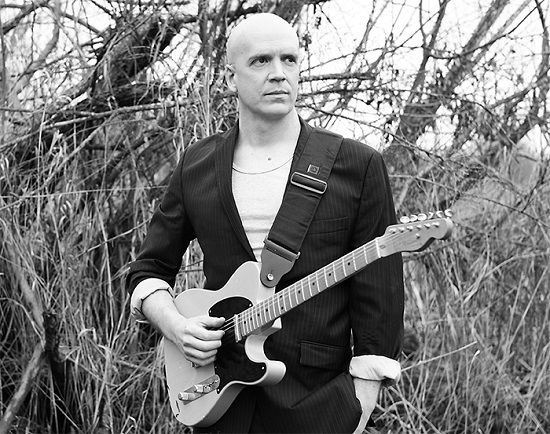
LRI: Ok, lastly, the Geek-Off Speed Round!
DT: (laughs) Go!
LRI: Because I’m a self-professed Geek-Nerd and can geek it up with the best of them.
DT: Me too, man! Go for it!
LRI: Star Wars or Star Trek?
DT: I think probably Star Wars, but it’s pretty equal. I’m not obsessed about either, if that is of any consequence. I like them both. I’m probably a little more connected to Star Wars, but either/or is fine, to be honest.
LRI: Harry Potter, yes or no?
DT: Yes. Great books, too. I don’t read a lot, but I know some brilliant people that love the books. Like “I know you may think this is a kids’ book, but they’re just brilliantly written.” So, I’ll give it a thumbs up.
LRI: What was the last video game you played that you really loved?
DT: Oh, I hate video games! Maybe years ago there was a game called Wipeout, that you hold a button, and you go really fast, things explode, and it tells you you’re a good person. That was it. I just… I hate video games. It’s funny too. When I meet people like “oh, I’m a gamer.” I’m like, a what? That’s a thing? But, god, what a huge industry, and I know people that are SO into it, but I just… I hate it! Doesn’t work for me in the slightest.
LRI: Jim Henson’s greatest film– “Dark Crystal” or “Labyrinth”?
DT: “Dark Crystal” by about a thousand miles. Didn’t like “Labyrinth”.
LRI: No?
DT: No. “Dark Crystal” changed my life, but “Labyrinth”, didn’t like it. It didn’t work for me.
LRI: As far as comics go, DC, Marvel, or neither?
DT: Neither because I wouldn’t be able to identify anything on them. I do have a bunch of comic books and I used to be into it. There’s a comic book I liked for a while called The Maxx that I thought was good. And I used to like some of the manga stuff. There’s one called The Dirty Pair that I liked. But that was many years ago, I’d say like 15 years ago. That was the last time I had any sort of comics in my world.
LRI: Last question, has being a parent affected your writing process at all?
DT: Oh yeah, absolutely. It makes me realize how fortunate I am to just be able to do it. I think before being a parent, I had put this sort of sense of importance on music and my work. That was detrimental not only to the music in some ways, but also to my mental health. You end up being so sensitive about these things that all of a sudden your identity becomes so intertwined with what you do vs. who you are. When I finally stopped smoking and I finally had kids and all that, I didn’t know who the fuck I was! I was like, without this, I cease to exist in some weird way. Yet, I still exist! And there’s tons of things that need to be done. So now what? What finally ended up happening is, when I finally broke through that kind of wall, I was able to write a lot more efficiently and a lot less second guessing involved with it. And it’s been great!
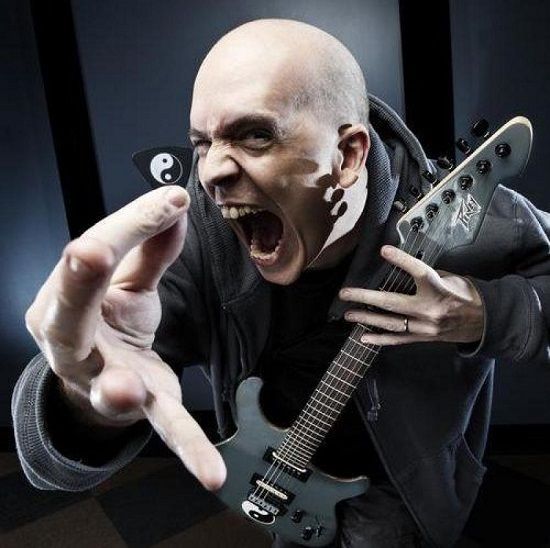
Following its original release in 2014, Devin Townsend’s debut as Casualties Of Cool will see a full worldwide release on the January 15, 2016, with the album joined by a bonus CD with b-sides as well as a brand new bonus live DVD featuring a full set filmed at London’s beautiful Union Chapel during the short run of shows that took place around the album’s launch.
CASUALTIES OF COOL – Mountaintop (OFFICIAL VIDEO)
CASUALTIES OF COOL – Daddy (Official Live Video)
Purchase Casualties Of Cool:
Click here for Casualties Of Cool from Amazon
Purchase Casualties Of Cool” from Inside Out Music:
Click here for Casualties Of Cool
Official Devin Townsend website:
http://www.hevydevy.com/
Devin Townsend on Facebook:
https://www.facebook.com/dvntownsend
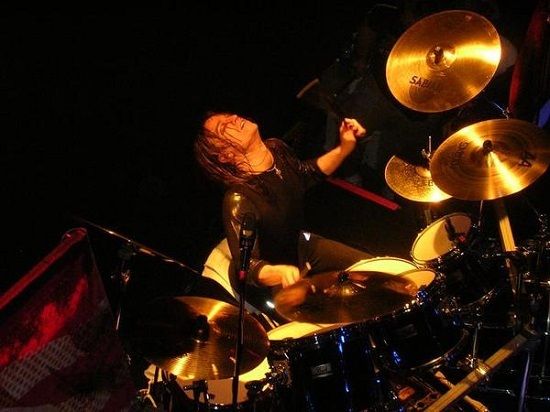
Thanks again to Mike Dupke for conducting the interview. Check out Mike at the following website:
Official Mike Dupke website:
http://www.mikedupke.com/
Category: Interviews
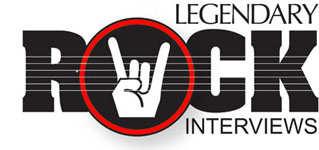



Comments (2)
Trackback URL | Comments RSS Feed
Sites That Link to this Post